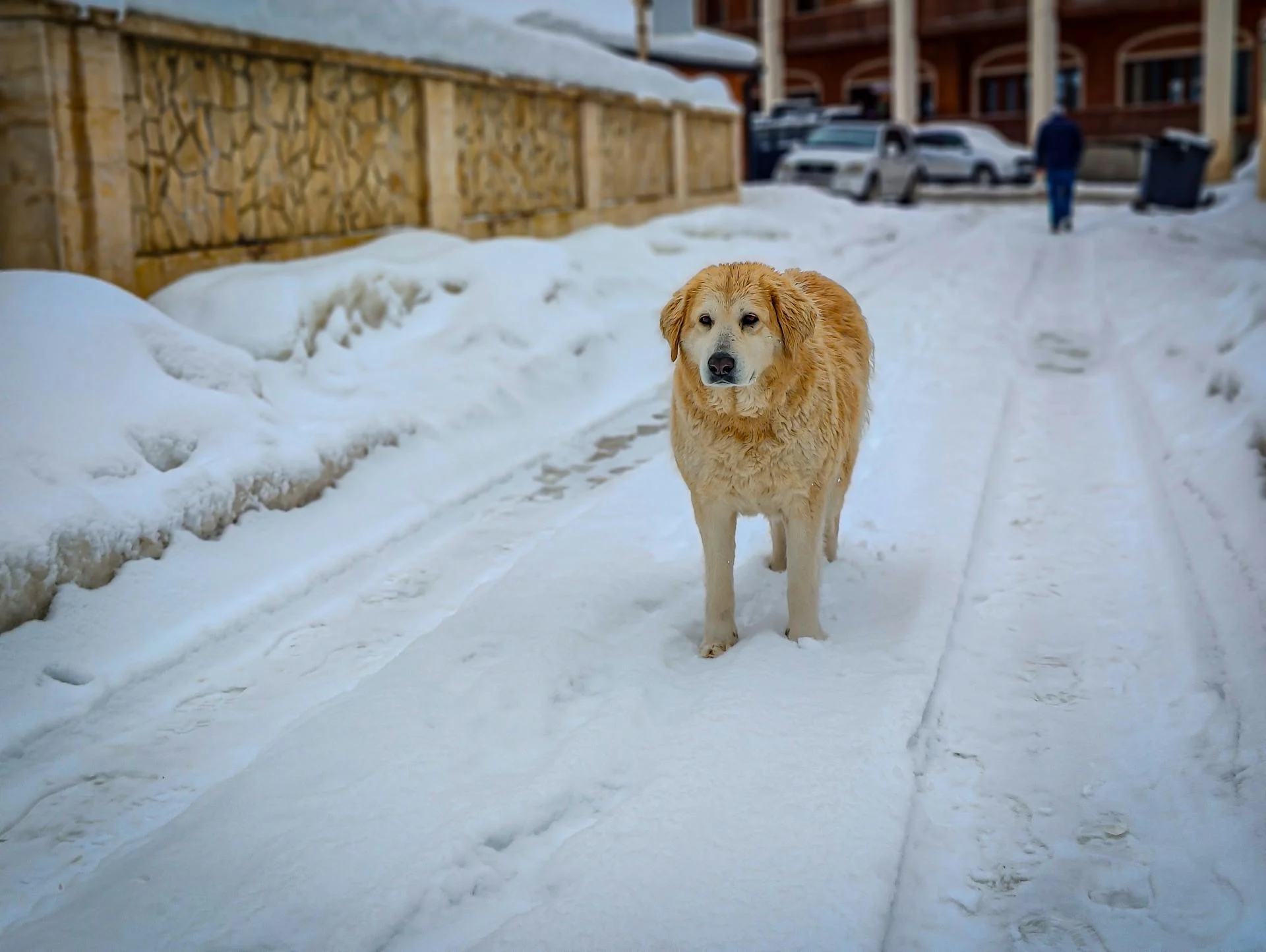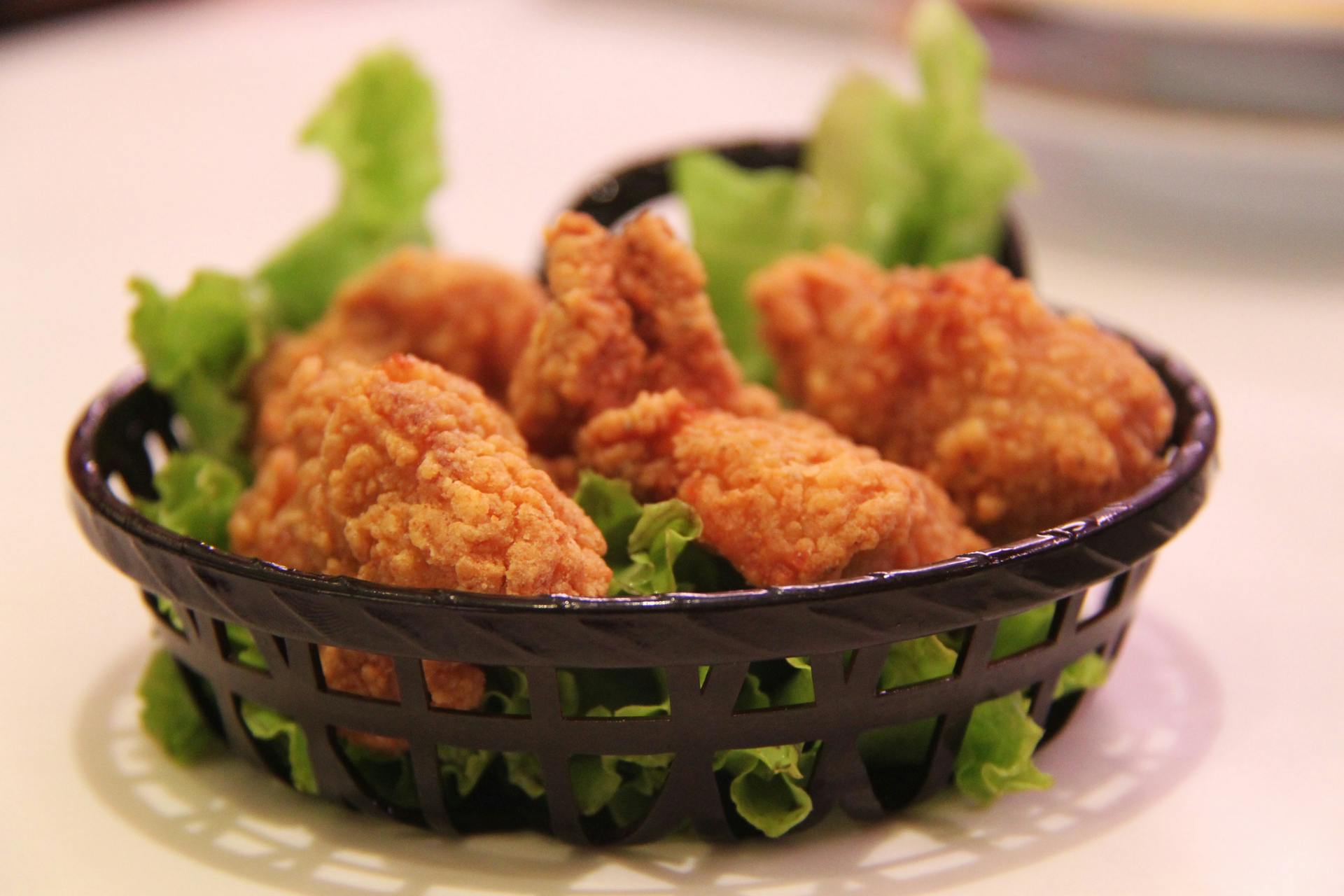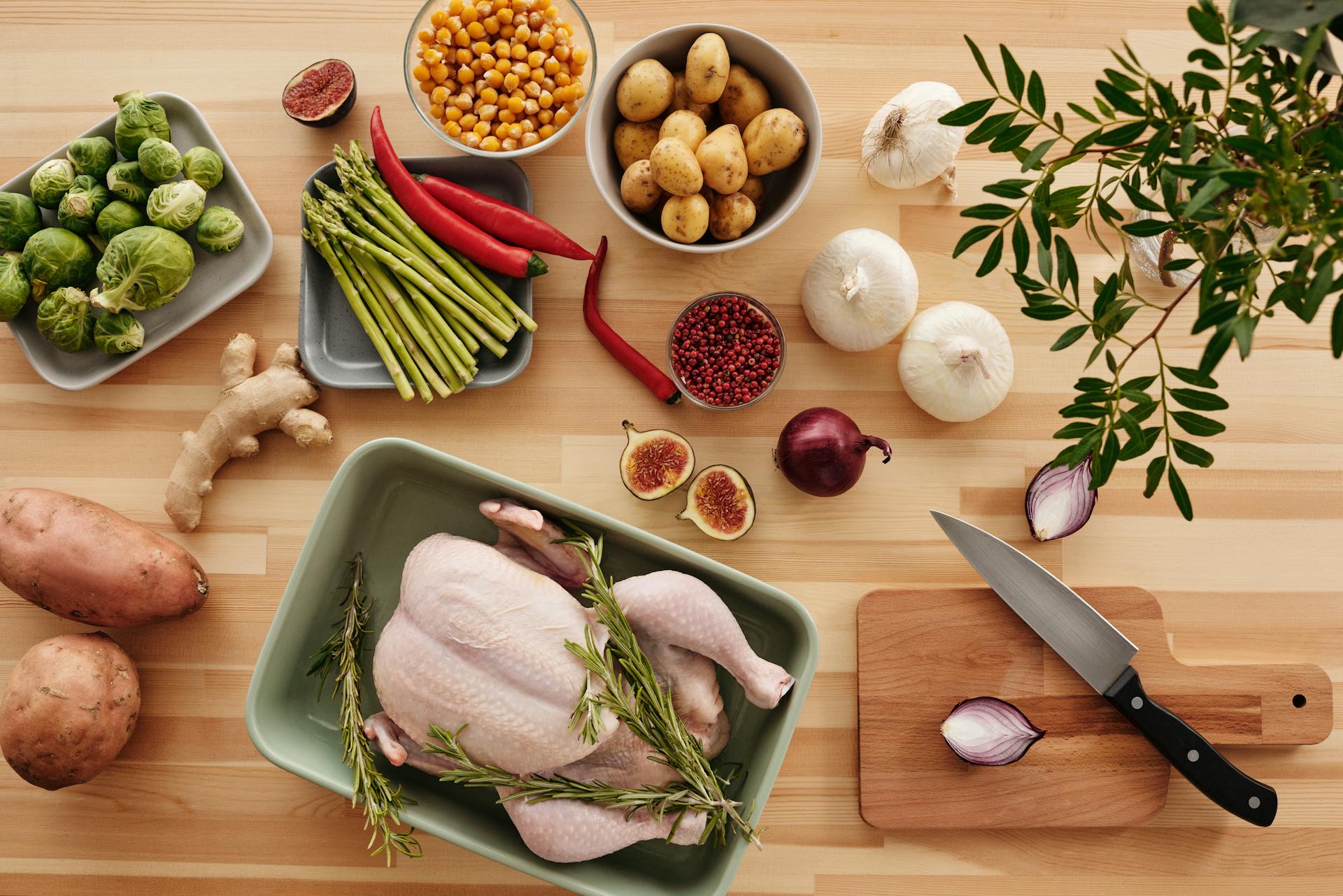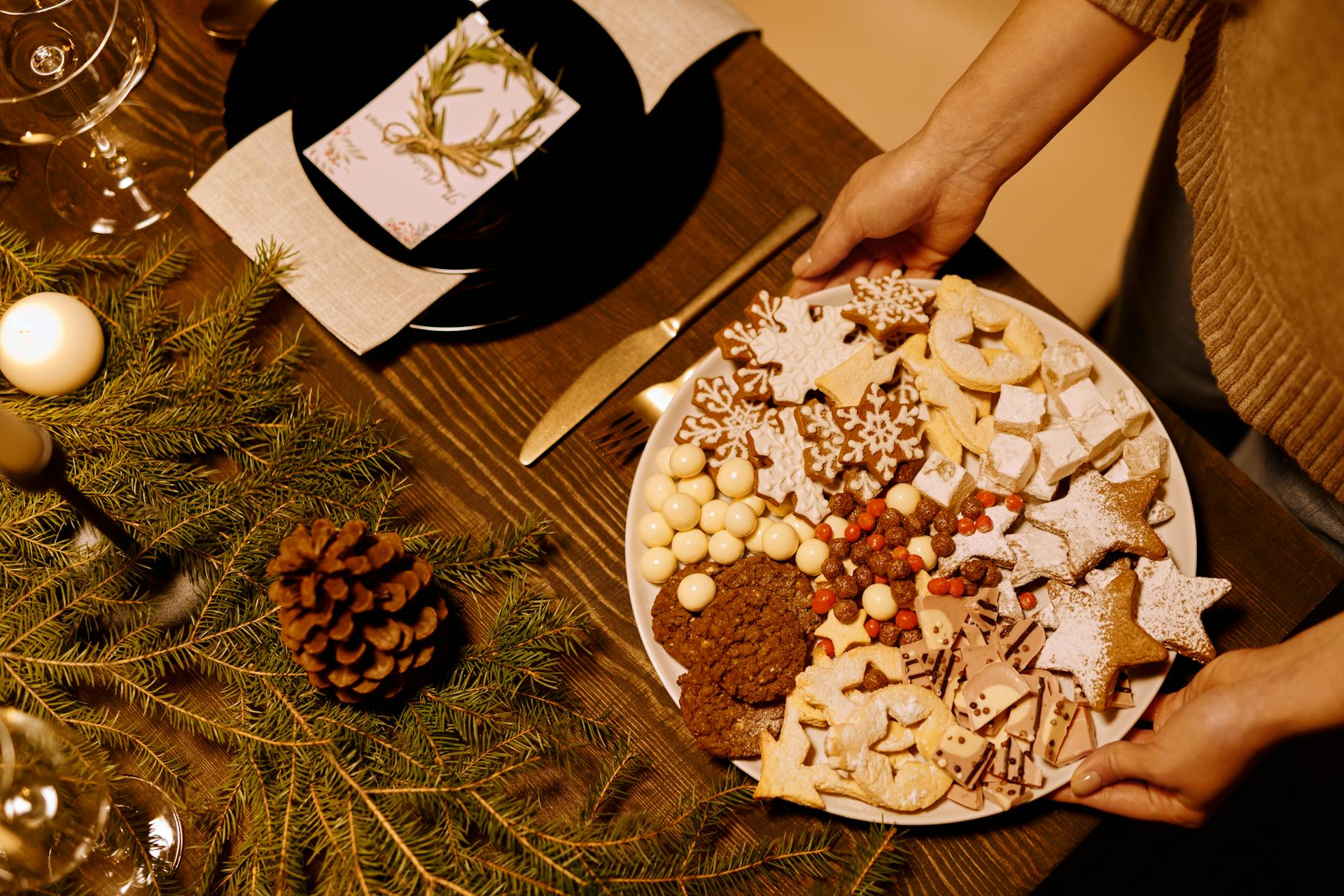
The Great Pyrenees and chickens can form a wonderful pair, providing mutual benefits for both. Great Pyrenees are natural guardians, and they take their job very seriously.
They have a strong instinct to protect their flock, which includes chickens. In fact, they are often used as livestock guardians to watch over sheep and other animals.
Their large size and intimidating presence can deter predators, keeping chickens safe from harm. Great Pyrenees are generally gentle with their flock, but will defend them if necessary.
By keeping Great Pyrenees and chickens together, you can create a harmonious and secure environment for both animals.
Related reading: Livestock Guardian Animals
What Is a Livestock Guardian Dog?
A Livestock Guardian Dog, or LGD for short, is a dog breed that's been around for centuries. They're bred to guard livestock, and can handle all kinds of farm animals, from cows to chickens.
These dogs are medium-to-large in size, strong but gentle, and calm. They have to be able to watch the flock all day and keep it together, while also protecting it from predators like wolves, coyotes, and foxes.
LGDs are often comfortable with spending time alone with the livestock, but are always on the lookout for potential threats. They're strong and alert, making them perfect for the job.
Some of the best LGDs have been bred to guard livestock since the Bronze Age, making them one of the oldest dog breeds around. They're intelligent, protective, and adaptable, but also loving and calm with their families.
To be effective, LGDs need proper training and socialization. This will help them learn how to protect your flock the way you want them to.
Here are some key characteristics of LGDs:
- Scent marking
- Attack disruptions
- Head on confrontations
- Alerting
These methods help LGDs handle threats both before and during an attack, making them great at keeping your flock safe.
Territorial Protector
The Great Pyrenees is a natural guardian of its flock, with a strong instinct to protect chickens from predators.
This breed's territorial nature is a key factor in its effectiveness as a protector. They will defend their territory against any perceived threats, including coyotes, foxes, and wild dogs.
Great Pyrenees are known to be fiercely loyal to their flock, and will often position themselves between their charges and potential threats. This protective behavior is a result of their strong instinct to guard and defend.
In the presence of a predator, a Great Pyrenees will typically bark loudly to alert the flock and scare off the threat. They may also use their size and strength to chase the predator away.
With proper training and socialization, a Great Pyrenees can learn to live harmoniously with chickens, even allowing them to roost in the same coop.
Types and Lists
The Great Pyrenees is a natural guardian of chickens. They're bred to protect livestock from predators, so it's no surprise they make great watchdogs.
Typically, a Great Pyrenees is very alert and protective, making them a great choice for homes with chickens. They're loyal to their family and can be quite sweet, but don't let that fool you - they'll confront threats when necessary.
Great Pyrenees are territorial and will defend their territory and the chickens within it. They prefer to intimidate rather than fight, but they'll do whatever it takes to keep their flock safe.
Strangers, predators, and stray dogs won't stand a chance against a Great Pyrenees guarding the chickens.
Related reading: Guard Dogs for Chickens
Frequently Asked Questions
What is the best guard dog for chickens?
The best guard dogs for chickens are breeds like Kangal, Great Pyrenees, and Anatolian Shepherd, known for their protective instincts and gentle nature. Consider these breeds if you're looking for a loyal companion to safeguard your flock.
How to train Great Pyrenees to not eat chickens?
To train a Great Pyrenees to protect, not eat, chickens, create artificial dangers and reward her for defending them, while also preventing wandering and encouraging her to respond to chicken distress calls. Effective training requires patience, consistency, and positive reinforcement techniques.
Sources
- https://www.k9ofmine.com/dogs-good-with-chickens/
- https://www.permaculturenews.org/2022/07/18/3-top-livestock-dogs-for-chickens/
- https://www.motherearthnews.com/homesteading-and-livestock/livestock-guardian-dogs-great-pyrenees/
- https://toweringoaksfarm.com/great-pyrenees
- https://homeinthefingerlakes.com/livestock-guardian-dogs-for-chickens/
Featured Images: pexels.com


